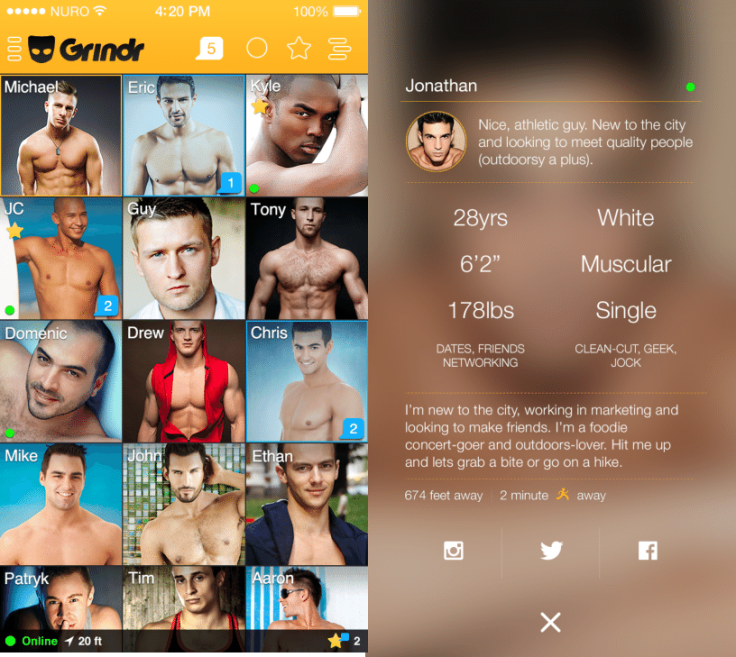Grindr: Options For Toned, Average, Large, Muscular, Slim, Stocky... But Overweight?

Now, who would have thought that an app created for gay men could still be discriminatory?
A study by the University of Waterloo has found that Grindr, the most popular dating app for gay, bisexual, two-spirit and queer men, is negatively affecting men’s body image, and more so when it is about weight. 75 percent of gay men are reported to have used Grindr.
"Dating apps have skyrocketed in popularity over the past decade or so and have radically transformed the ways individuals connect with one another," said Eric Filice, a public health doctoral candidate and lead author of the study. "We were surprised to find that weight stigma is perpetuated by individual users and embedded within the app's information architecture."
When 'toned,' 'average,' 'large,' 'muscular,' 'slim' and 'stocky' are the only options, what is a chubby guy to do? Does that mean men on the pudgy side should not be using this app? Or should they be lying about their physical description?
"Participants recalled their body weight or shape being scrutinized for allegedly being incompatible with their gender expression or preferred position during intercourse," said Filice. "We think this points to the importance of locating weight stigma within and alongside other intersecting power relations."
Besides the weight stigma, the study found that body dissatisfaction lay in sexual objectification and appearance comparison. "It doesn't help that because Grindr exists to connect users for dating or sex, physical appearance bears greater cultural salience," Filice said. "People often compare their candid, in-person appearance to the meticulously curated or digitally altered appearances of others they encounter online.”
"On the other hand, we were especially compelled by the myriad protective factors and coping strategies that participants suggested help mitigate Grindr's deleterious effects on body image," said Filice. These included valuing positive self-esteem, having a social support system, and avoiding situations that increase insecurities.
However, Filice is not suggesting dating-app usage should be avoided altogether. "Health promotion strategists should focus on patterns in app use that are most harmful and orient their interventions accordingly. Many of our participants see Grindr as a necessary evil, as internet-mediated communication has served a unique historical role for gay men in circumventing social, cultural and legal barriers to making connections in public spaces."
He added, "Much remains to be done. We still have little insight into how dating apps influence the bodily perceptions of trans and gender-nonconforming folks."
© Copyright IBTimes 2025. All rights reserved.





















